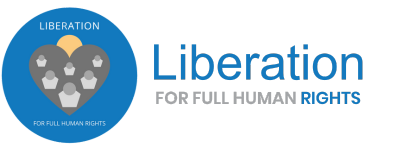Liberation is a member of Transforming Communities for Inclusion (TCI), an international group which campaigns for people with psychosocial disabilities (people with experience of mental distress/trauma) to have the full human rights set out in the UNCRPD; these include an end to detention in psychiatric hospitals and forced treatment. TCI has been running a campaign against medical oppression of people experiencing mental distress/trauma to which Liberation has contributed. The four themes for this have been:
- De-institutionalisation: with particular reference to the UNCRPD's recent guidelines on de-institutionalisation
- Community inclusion: whether having a personal assistant should be the main focus, or more is needed if we are to be included fully in communities
- Access to justice: in particular implementation of Article 12 of the UNCRPD, which gives us the same right to legal recognition before the law as non-disabled people have
- Lived experience of people with intersectional and neuro-diverse identities.
Liberation is also now contributing to TCI’s most recent campaign: against Psychiatrising the Sustainable Development Goals.
The Sustainable Development Goals (SDGs) are an important set of goals designed to address key human rights issues. The UN is calling on all countries to act together to implement them. The SDG emphasise the need to:
- End poverty and other forms of deprivation
- Recognise the importance of strategies which improve health and education, reduce inequality, and stimulate economic growth
- Take decisive action to address climate change and to preserve the world's oceans and forests.
The UNCRPD serves as a guide for the implementation of the SDGs; the two should be used in tandem.
The campaign from TCI represents a challenge to the draft SDG resolution for the UN's General Assembly which the Mexican Ambassador to the UN, Mr. Juan Ramón de la Fuente, has put forward. The draft was not put out for consultation, nor publicised on the UN's website. The concern is that, although the UNCRPD is cited, the draft Resolution falls short of it in some fundamental ways. For example:
- The draft utilises a clinically-based approach
- The call to repeal all mental health legislation and other legislation which uses our disabilities to authorise detention in hospital against our will and involuntary treatment is not specific enough, despite the UNCRPD’s emphasis on repealing such law
- The draft Resolution fails to draw adequately on the UNCRPD Deinstitutionalisation Guidelines
- Despite all the harm which many of us have experienced from the psychiatric system, the recommendation is that psychiatrists and other mental health professionals retain a lead role in future services
- The draft Resolution's description of the difficulties which we experience as a burden on states is discriminatory and represents a failure to recognise the major impact of problems which we have experienced from society
- The draft has been collated and put forward without any involvement of organisations led by people with experience of mental distress/trauma.
There have now been two letters from Liberation raising these sorts of concerns. On the first occasion, Juan Ramón de la Fuente replied with a strong assertion about his concern for human rights, but did not address the issues raised. Some revisions to the draft Resolution were also made, but these remained inadequate. There was no reply from Juan Ramón de la Fuente to the further letter which Liberation then sent. Alongside TCI and a wide range of user-led groups from other countries, Liberation is calling for a halt to progressing the draft Resolution until user-led groups have had a meaningful role in its content. We are now waiting for further news. A more cheering development is that Mrs. Gertrude Oforiwa Fefoame, the UNCRPD chair, whom Liberation contacted, has indicated that the UNCRPD Committee will be responding to the draft Resolution.
